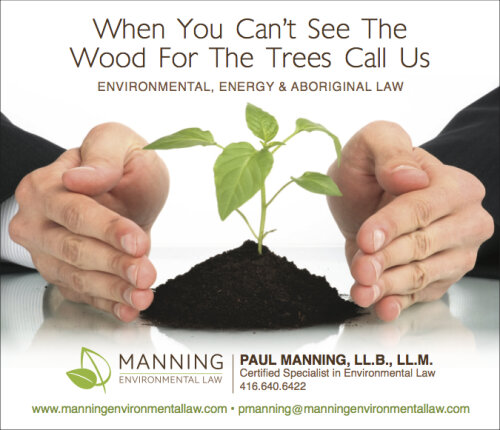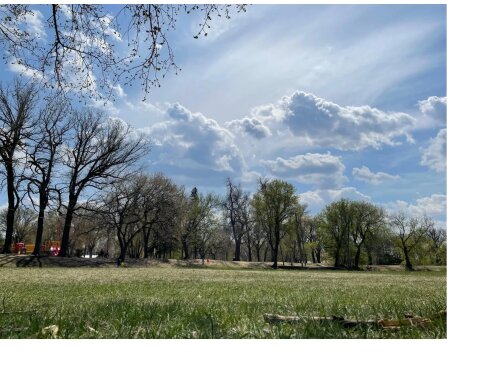Best Water Law Lawyers in Toronto
Share your needs with us, get contacted by law firms.
Free. Takes 2 min.
List of the best lawyers in Toronto, Canada
About Water Law in Toronto, Canada
Water law in Toronto, Canada, refers to the collection of legal principles and regulations governing the use, management, protection, and distribution of water resources. Given Toronto's location near Lake Ontario and reliance on both surface and groundwater sources, these laws play a central role in balancing environmental protection, development needs, and public health. Water law can encompass a wide range of issues, including water rights, pollution and contamination, stormwater management, and infrastructure projects that may affect water quality or access.
Why You May Need a Lawyer
Engaging a lawyer who specializes in water law can be vital in various scenarios. Common situations include:
- Disputes over riparian or groundwater rights between property owners or with government agencies
- Compliance issues related to environmental regulations, such as discharging pollutants or altering natural watercourses
- Development or land use projects near lakes, rivers, or wetlands demanding permits or environmental assessments
- Concerns over municipal water supply, safety, or contamination incidents
- Flooding or drainage disputes, especially where changes in land use have impacted water flow
- Challenging or defending enforcement actions taken by regulatory authorities like the Ministry of the Environment, Conservation and Parks (MECP)
A lawyer can help you understand your rights and obligations, represent you in negotiations or court proceedings, and assist in ensuring regulatory compliance to avoid costly penalties.
Local Laws Overview
Water law in Toronto is shaped by a combination of federal, provincial, and local statutes, as well as common law principles. Key legal frameworks include the Ontario Water Resources Act, the Clean Water Act, the Safe Drinking Water Act, and the Environmental Protection Act. These laws cover several critical aspects:
- Water Quality and Safety: Regulates municipal water supply and sets standards for drinking water safety.
- Permits and Approvals: Requires permits for certain activities like taking water from natural sources or discharging to water bodies.
- Stormwater Management: Governs municipal efforts to manage urban runoff and reduce pollution entering creeks and Lake Ontario.
- Development Restrictions: Enforces zoning and environmental assessments for projects near watercourses or protected wetlands.
- Dispute Resolution: Offers procedures for addressing boundary water and drainage disputes, frequently handled in civil court or before special tribunals.
Toronto also implements by-laws addressing specific local concerns, such as storm sewer use, cross connections, and water conservation measures, all of which may influence property owners and businesses.
Frequently Asked Questions
What is considered a watercourse under Toronto water law?
A watercourse generally refers to any body of water, whether natural or artificial, including lakes, rivers, streams, and creeks. Some intermittent or seasonally dry channels may also be classified as watercourses if they direct flow to other water bodies.
Do I need a permit to take water from a stream on my property?
Yes, taking significant amounts of water from any surface or groundwater source typically requires a permit under Ontario’s Water Resources Act. Small or domestic uses may be exempt, but it is best to consult a lawyer or local authority before proceeding.
What do I do if my neighbour’s construction causes flooding on my property?
Flooding caused by changes to land use or grading may give rise to a civil claim. It is important to document the situation and consult a water law lawyer for advice on pursuing compensation or remediation.
Who regulates water quality in Toronto?
Water quality is regulated at multiple levels. The City of Toronto oversees municipal water supply and wastewater systems, while Ontario’s Ministry of the Environment, Conservation and Parks enforces broader water quality standards. The federal government may be involved when impacts cross provincial boundaries or involve navigable waters.
Can I build near a lake or river in Toronto?
Building near any water body is usually subject to strict zoning regulations and may require permits or environmental assessments. Toronto and conservation authorities assess such projects for potential impacts on water quality, habitats, and flood risk.
How are water rights determined in Ontario?
Ontario uses a regulated system rather than private ownership of water. Rights to use water are granted through permits, approvals, and licenses, which are subject to government review and public interest considerations.
What should I do if I suspect contamination in my drinking water?
Contact your local water provider and the City of Toronto immediately. Depending on the severity, the Ministry of the Environment, Conservation and Parks may get involved. Legal advice is recommended if there are health or property impacts.
Am I responsible for stormwater runoff from my property?
Yes, property owners must comply with stormwater management by-laws. Unauthorized discharges or modifications affecting runoff can lead to fines or enforcement actions.
How do conservation authorities influence water law in Toronto?
Local conservation authorities manage watersheds and play a significant regulatory role in approving developments, protecting wetlands and floodplains, and enforcing environmental regulations.
What happens if I breach water law regulations in Toronto?
Breaches can result in orders to restore conditions, administrative penalties, and potential prosecution. Early legal advice can help mitigate consequences and guide compliance efforts.
Additional Resources
If you are seeking more information or need help navigating water law issues in Toronto, consider consulting:
- City of Toronto Water Services
- Ontario Ministry of the Environment, Conservation and Parks
- Toronto and Region Conservation Authority
- Legal clinics and environmental advocacy organizations, such as the Canadian Environmental Law Association
- Ontario’s Environmental Commissioner’s Office
- Local law libraries with resources on environmental and municipal law
Next Steps
If you believe you have a legal concern related to water law in Toronto, take the following steps:
- Document the facts, dates, and any supporting evidence regarding your water issue
- Review relevant local by-laws and provincial statutes to understand your obligations
- Contact an experienced water law lawyer for advice specific to your circumstances
- Consider reaching out to municipal or provincial regulatory bodies for guidance or to report urgent issues
- Stay proactive about compliance to avoid potential enforcement or litigation
Timely advice and representation can help resolve water-related legal issues efficiently and in accordance with regulations, whether you are a homeowner, developer, business, or concerned citizen.
Lawzana helps you find the best lawyers and law firms in Toronto through a curated and pre-screened list of qualified legal professionals. Our platform offers rankings and detailed profiles of attorneys and law firms, allowing you to compare based on practice areas, including Water Law, experience, and client feedback.
Each profile includes a description of the firm's areas of practice, client reviews, team members and partners, year of establishment, spoken languages, office locations, contact information, social media presence, and any published articles or resources. Most firms on our platform speak English and are experienced in both local and international legal matters.
Get a quote from top-rated law firms in Toronto, Canada — quickly, securely, and without unnecessary hassle.
Disclaimer:
The information provided on this page is for general informational purposes only and does not constitute legal advice. While we strive to ensure the accuracy and relevance of the content, legal information may change over time, and interpretations of the law can vary. You should always consult with a qualified legal professional for advice specific to your situation.
We disclaim all liability for actions taken or not taken based on the content of this page. If you believe any information is incorrect or outdated, please contact us, and we will review and update it where appropriate.

















